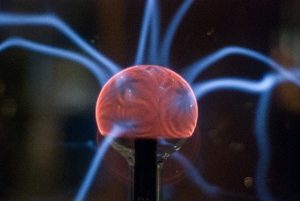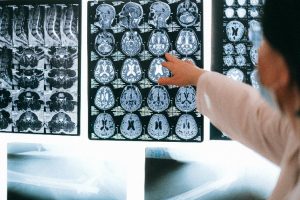Epilepsy
Epilepsy is a common condition among adults and children, that affects the brain, and is defined by unprovoked, frequent and recurring seizures.
Some types last for a limited time or gradually improve over time, but for many people, epilepsy can be a life-long condition.
Although the prospect of living with epilepsy may feel daunting and overwhelming, it is important to remember that most people are able to lead ordinary lives if their seizures are well controlled.
Symptoms
Seizures are sudden surges of electrical activity within the brain that can temporarily affect how it functions and can cause a number of symptoms.
Seizures can affect people in various different ways, depending on which area of the brain is involved.
Symptoms include but are not limited to:
- Uncontrollable episodes of shaking or jolting
- Collapsing
- Staring blankly into space and losing awareness
- Tense or stiff muscles
- Loss of consciousness
- Temporary confusion and memory loss
Causes
In most cases, there is no definitive reason as to why it occurs. It is possible that it could be partly caused by a person’s genes affecting how the brain functions, as it has been found that 1 in 3 people with epilepsy also have someone in the family who has it.
In some cases, epilepsy can be caused by damage to the brain, such as:
- a lack of oxygen during birth
- an infection of the brain
- a severe head injury
- a brain tumour
- a stroke
Diagnosis
It can often be slightly difficult to diagnose epilepsy because some other conditions share similar symptoms.
A diagnosis may be concluded following an in-depth symptom review, or when a person has two unprovoked seizures or one unprovoked seizure with, according to a specialist, an imminent risk of more.
If a review of symptoms alone is not sufficient, a specialist may advise that a number of investigative tests are undertaken to monitor activity in the brain.
Suggested tests usually include:
- A brain scan (MRI)
- An electroencephalogram (EEG) – a test that uses small sensors to pick up the electrical signals produced when brain cells send messages to each other.
Treatment
There are a range of treatment options for epilepsy. In most cases, these can help to reduce seizures or even help prevent seizures occurring completely.
Treatment options include:
- Certain anti-epileptic medications
- A procedure to put a small electrical device inside the body to help control seizures
- A Ketogenic diet that can help control seizures
- Surgery to remove a small part of the brain that is causing seizures to occur
The required duration of treatment is dependent on the individual case – some people may need treatment for life, and some may be able to stop treatment over a period of time if their seizures completely disappear.
Here at One Hatfield Hospital, we have a team of specialists on hand to assess, diagnose and treat epilepsy.
Why One Hatfield
- Modern purpose-built hospital opened in December 2017
- 0% and low finance options**
- Fast access to diagnostics including MRI, X-ray and Ultrasound
- Private, spacious, en-suite rooms
- Specialist physiotherapy and nursing teams
- Little or no waiting time
- ‘Ultra clean air’ theatres
- Freshly prepared food
- Calm, dignified experience
**Terms and conditions apply
Contact us and find out more
If you are based in and around Hertfordshire, St Albans, Stevenage, Watford, Barnet, North London, Welwyn or Bedfordshire and would like to visit the One Hatfield Hospital please click here.






 One Ashford
One Ashford One Hatfield
One Hatfield